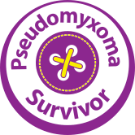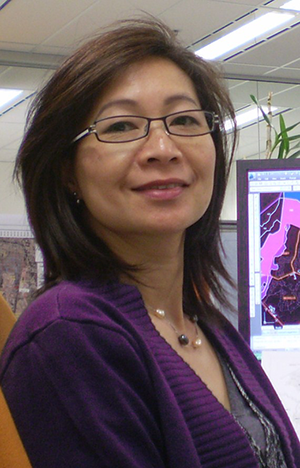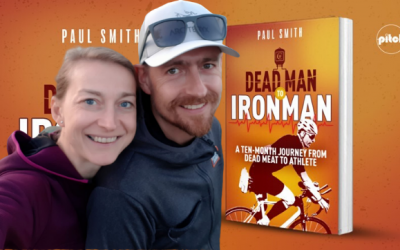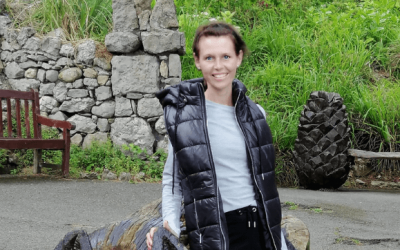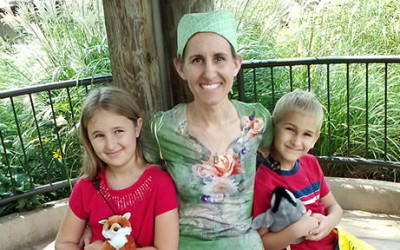My initial symptom was a tiny pain (feel like pins & needles) from my lower abdomen, it only last a couple of seconds, it came and went. I was a healthy, active mum filled with energy and a busy life style.
This discomfort did not stopping me from doing anything including my regular active sport – badminton. I ignored this tiny pain didn’t think it was a sign of a disease until one year later, during my long Christmas break, planning to spend some lovely time with my kids, and pampering at the same time. I decided to go to check it out.
The ultrasound picked up some abnormality from my abdomen – it showed cystic masses in both ovaries. The blood test results showed three out of the four tumour markers were elevated. The diagnostic was treated as ovarian cancer. I had debulking surgery where it was found that I had stage 3 pseudomyxoma peritonei (PMP).
I then had further cytoreductive surgery, I was so lucky that the surgery was performed by Prof. David Morris who is one of the world expert in this procedure. I was given HIPEC¹ during the operation and EPIC² after the operation for one week. I had post surgery complication by a chyle fistula. I was treated with octreotide and total parenteral nutrition (TPN) throughout the periods at the hospital, I was at the hospital for 5.5 weeks. The operation left me with a stoma, I had a reversal after 5 months.
Emotionally, I was affected every time I faced my children, particularly my son who has Autism. He relied on my care. For support, I turned to my family and colleagues from work, community nurses. Most importantly, I found Kay and she introduced me to the PMP support group. This group had given a strong support during my darkest time!
My health is fantastic now, I’ve returned to my normal life and be surrounded by families and friends. I was able to get back to my regular favourite sport – badminton – and I went back to work just four weeks after my stoma reversal operation.
If there are three things that I would share with fellow patients, they are:
- Be strong and confident, just thinking of your children, that they need your care
- Talk to the PMP support group, they will spiritually assist you and build up your hope – you are not alone
- Be happy and stay healthy.
I trust my surgeon, Prof. David Morris, who is based at the St George Hospital, Kogarah, NSW, Australia. I am so thankful that I was placed under his care, he has saved so many lives!
HIPEC
Hyperthermic Intraperitoneal Chemotherapy
Heated chemotherapy, delivered directly into the abdomen, after complete cytoreduction. If the surgeons are able to remove the all the tumours, you may be given HIPEC.
Hyperthermic means that the chemotherapy solution used during the procedure is heated to a higher-than-normal temperature, typically around 41-43°C (105.8-109.4°F). This is usually Mitomycin C. This is put directly in your abdomen while you are in theatre. This elevated temperature is maintained throughout the duration of the procedure, usually around 90 minutes, to enhance the effectiveness of the chemotherapy drugs and to target cancer cells in the abdominal cavity. HIPEC will penetrate tumour nodules up to 2.5mm in size. The combination of chemotherapy drugs and hyperthermia can help to destroy cancer cells (increased cytotoxicity) while minimizing damage to healthy tissue.
Chemotherapy given into the abdomen during surgery is called intraoperative chemotherapy.
EPIC
EPIC – early post-operative intraperitoneal chemotherapy.
Chemotherapy given directly into the abdomen after surgery.
In case you missed it...
Dead Man to Iron Man
As I came to terms with the news, I understood that it would be important for me to get as fit as I could to face such an invasive operation ominously dubbed the “The Mother of all Surgeries” or MOAS.
A grant from Pseudomyxoma Survivor helped me
I am so grateful for the grant from Pseudomyxoma Survivor which I received. It has helped me financially during such a difficult time.
I was told it looked like ovarian cancer… but it wasn’t
After my diagnosis with metastatic, well-differentiated mucinous adenocarcinoma of the appendix, my doctor said I have a 72% chance of being alive in 10 years; those are great odds for a cancer patient.
